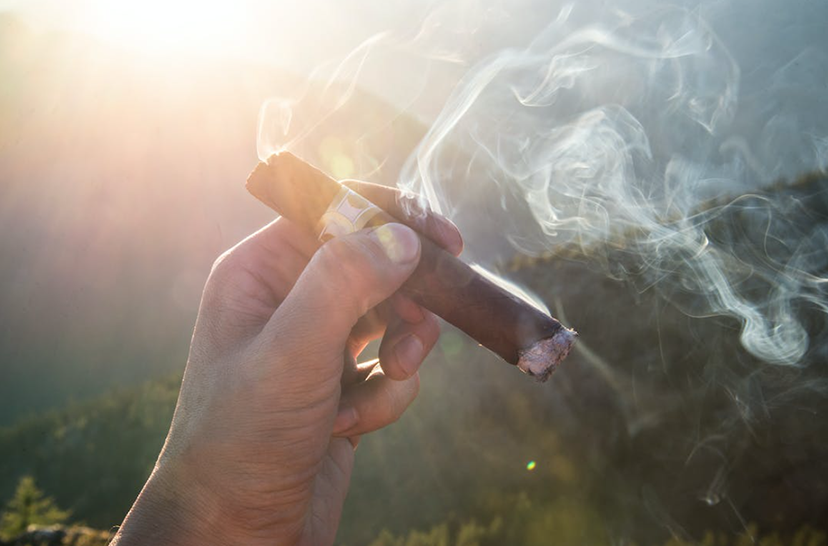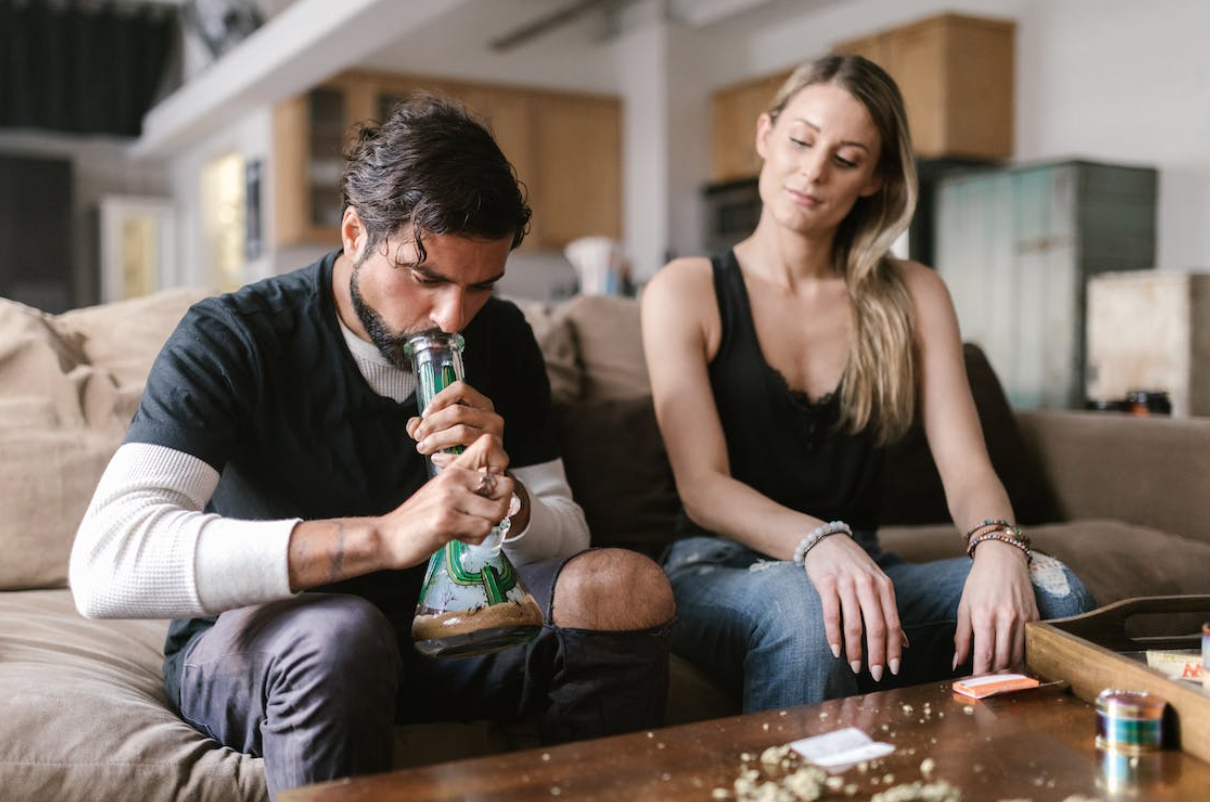Chewing the CUD (Cannabis Use Disorder)

For many years a debate has taken place with regards to whether or not cannabis is an addictive substance.
Arguments on both sides offer a plethora of evidence, albeit hypothetical and observational for the most part, but many people have argued that while people can potentially perceive themselves as becoming increasingly psychologically dependent on cannabis there is no real risk of an actual addiction, per se.
Thankfully, as more places change their stance on the illegal nature of cannabis there is more of a focus on actual scientific research, so let's consider how this might affect people's perception of this issue.Firstly, there is no question that any substance has the potential to be consumed excessively. From the food we eat to the levels of salt we add to a meal, or from an individual's daily alcohol consumption to the amount of time we spend on our phones and devices, human beings can sometimes makes poor choices which bring additional health risks.
Ultimately, we consider most of these to be linked to personal choice and preference but there are external factors which may alter the level of consumption at any given time. The addictive nature of anything must be considered, yet a level of dependency which results in physical or psychological consequences when a 'fix' is unavailable is often seen as a sign that someone is suffering with addictive tendencies. In most cases, however, these consequences vary wildly in terms of how people report 'cannabis withdrawal' symptoms and some people argue that it is simply impossible to compare cannabis to other drugs in this respect.
As the move towards more leniency for medical cannabis continues to grow, the number of people who are able to access cannabis has increased dramatically. Many people are now being legally prescribed cannabis for a wide range of conditions and ailments including an ever-growing number who are offered it as a treatment for issues linked to anxiety and its associated disorders. A recent study highlighted a possible correlation between the issuing of a Medical Marijuana Card and a greater perceived reliance on or need for cannabis. Some people involved in the study indicated that they felt irritable, suffered mood swings or couldn't sleep as well when their supply of cannabis was interrupted, but it is not clear how long this was reported to go on for or for how long the supply of cannabis was taken away. In essence, the links that are being made are based around the patient's need for either higher-concentration strains or a greater or more regular dose over time.
Obviously, as people's tolerance can gradually build up through regular usage, it's not uncommon for people to find themselves consuming increased quantities to treat their condition or for recreational users to opt for particular strains due to their effects. When you consider the fact that the majority of people who receive a Medical Marijuana Card are not given specific advice on which strains are best-suited to their needs, but instead have the freedom to choose their own preferences, it is entirely possible that some people simply change their strain or take time to figure out a routine that provides them with a better quality of life. Since the sample size is relatively small and the research took place over a limited time period, its results are hardly conclusive at this stage. Regardless of this, this type of research is linked to the condition known as Cannabis Use Disorder, or CUD.
Cannabis Use Disorder (CUD) is the name associated with cannabis addiction. If someone is believed to have a dependency on cannabis which means that they continue to use it despite clear signs of clinically significant impairment. One of the other things to note when it comes to talking about CUD is that the reported increases in its prevalence may seem shocking at first but when you unpick the figures they are slightly less dramatic than they first appear. For example, the figures indicate that there has been a 25% increase in the number of younger people being diagnosed with CUD in legalized states however the actual rate of CUD has risen from 2.18% to 2.72% (a real-term increase of just 0.54%) of the medical cannabis population.
In the same study it was reported that there had been a 37% increase in the older category (adults over 26 years of age), but this is a real-term change from 0.90% of the population to 1.23% (an increase of 0.33%). Both of these are very small percentages of the overall population and this also doesn't take into account which of the people involved in the study have previously had issues with addiction or addictive traits.

When you consider the vastly increased numbers of people who are actually being recorded as using cannabis (when previously it was based on assumptions and scaled samples), it would be expected that some people might seem to have increased their intake. Moreover, when someone finally manages to get hold of cannabis to treat their condition and finds it to be hugely beneficial it would come as no surprise that they might exhibit signs of 'dependency' on their medication if this is judged by the amount they consume and any changes in this quantity.In many ways, this is not the same as addiction as it is normally perceived. While some people may find themselves exhibiting slight mood changes, increased irritability or other emotional reactions to a lack of cannabis, the vast majority of users would find that these are short-term consequences which are mostly psychosomatic.
While users of other substances can find themselves unable to function without their 'fix' or potentially suffer severe side-effects from withdrawal, cannabis users are more likely to find themselves with broken sleep or vivid dreams than anything too significant or impactful. Of course, there are some exceptions to the rule and people who consume copious amounts of cannabis at a young age can form dependent-tendencies which can be mistaken for an actual addiction. As with so many aspects of this field of research, one of the biggest issues is the fact that prohibition has placed limitations on studies for so long that much of the anecdotal evidence is held as gospel.
It will be many years before we find meaningful studies that can finally say whether or not cannabis is truly addictive; in the meanwhile, we can only real look into our own experiences.Case in point, I use cannabis daily but currently limit my intake to the evenings mainly. This isn't to say that I never smoke in the morning (who doesn't enjoy a little wake-n-bake?) but I can't turn up to work at my day job high and the reality of having a family to look after limits how much time I have in the morning routine. Back in my younger days I was pretty heavy into smoking but that was because it formed part of the routine of socializing, and while I might have got myself into a few scrapes (and probably smoked more than I could really afford to sometimes) it never felt like I had lost control to it.
Not so long ago I stopped smoking cannabis completely for three years and it was probably just for a week or so that my nights were a little restless, hardly going cold turkey by any measure. Nowadays, if I hit a drought or find myself short of money and without any buds then I certainly might feel more irritable than I otherwise would for an hour or two but I am still able to function perfectly well without it. There are times when I go away and can't take my weed with me, however that doesn't mean I don't have a good time (and having a break is great for reducing your tolerance levels too). That being said, if I really want to get high and my usual avenues prove fruitless I can sometimes be the type to go to greater lengths to procure an alternative source. Perhaps this is the psychological aspect that people consider to be most prevalent, or maybe this is just about my personal preferences (or maybe I am an addict and I'm just making excuses).
Add in the various factors that we all have to contend with every day which might make us want to get high or cause us to maybe have a few more drinks than we should and you can understand why this has always been a bit of a grey area. That being said, in all my years of being a cannabis user I wouldn't say that I need to have it to get through the day but I certainly prefer to have it. Ultimately, if you ever feel that your need for weed becomes something beyond your control or you're concerned about your level of consumption then speak to someone about it because there's nothing wrong with keeping an eye on yourself, but treat things with respect and there's probably not too much to be concerned about.
Written and Published by Psy-23 in Weed World Magazine Issue 158
Featured Image: Pexels
Image: Pexels















Please complete your information below to login.
Sign In
Create New Account